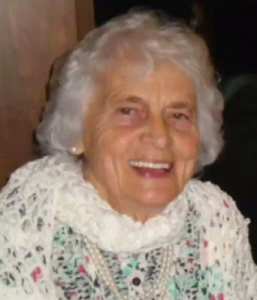When I was a kid my parents regularly took me to church dinners. Part of my family’s social schedule was the faith-based community events where folks got together over pancakes, spaghetti, shortcake and egg salad sandwiches. It never occurred to me that the organizers and food handlers weren’t professionals; they were the parents and grandparents of my friends.
And they happened to be making meals for a couple of hundred hungry community members.
I guess they meant well, but I have no idea whether the volunteers worried about food safety or did anything to keep me and the others sick. Or that community dinners had been a traditional setting for foodborne pathogen outbreaks. According to CBC news, over 100 members of a New Brunswick (that’s in Canada) community fell ill following a community Christmas meal, and tragically an elderly woman died.
Roughly 100 people attended the community supper on Dec. 5, where a traditional holiday meal of turkey, vegetables, gravy and pies was served.
Within a few hours of the supper, several people became sick. One woman died and 30 other people reported signs of gastrointestinal illness, diarrhea and abdominal pain. Bessie Scott has been identified as the woman who died, and on Friday family and friends filed into a funeral home in Nackawic to say goodbye.
Alex Hoffmann and his wife were among those who fell ill after eating the tainted food.
“At two o’clock we both woke up with terrible bellyache. And then I had to go that night three times …,” he said.
Dr. Jennifer Russell, the acting chief medical officer of health, said on Friday that public health officials have taken samples of the leftover food from the Christmas supper and are trying to determine the precise cause of the infections.
“But definitely the timeline of when those symptoms occurred was within 12 hours, so that is a pretty quick onset and so that in and of itself would tell us what kind of bacteria we are looking for,” Russell said.
“The most likely one that I discussed with Dr. Yves Leger [a local public health officer] is Clostridium perfringens.”
In 2011, the provincial government considered imposing food licensing and inspection requirements on not-for-profit events, such as church suppers.
But Madeleine Dubé, the health minister at the time, said the provincial government had received public feedback that “licensing and inspection requirements are too demanding for not-for-profit events.”
Environmental health specialists/health inspectors are the good guys, ensuring that organizers and volunteers have the right equipment in place and know what to do. Making turkey for hundreds is way different from making it for a family. A list of community dinner-linked outbreaks can be found here.
